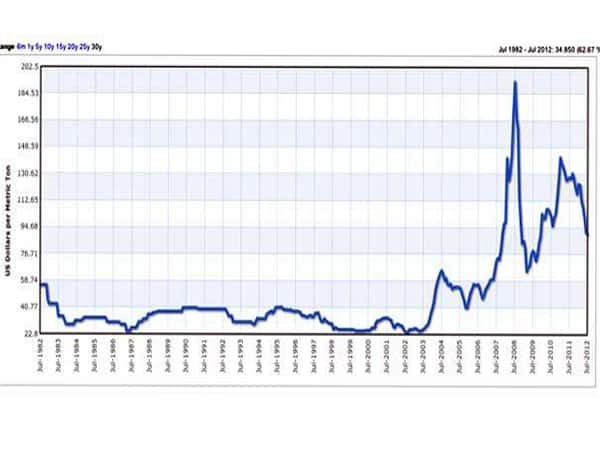Prime Minister Manmohan Singh told Parliament that allegations of impropriety in coal block allocations were without basis and unsupported by facts.
Singh also said that the policy of coal block allocation has existed since 1993 and previous governments also allocated blocks in precisely the same manner that the CAG has now criticised. “It is difficult to accept the notion that a decision of the government for legislative change in policy should come for adverse audit scrutiny,” Singh added.
However, the accompanying chart, brought to our attention by Rajendra Kakodar, an economist based in Goa, tells us why the arbitrary allocation of coal blocks did not matter before the UPA came to power.
[caption id=“attachment_432534” align=“alignleft” width=“600”]
 Coal Scam[/caption]
Coal Scam[/caption]
The coal pricing scenario till then was completely different and even if favours were shown during the NDA regime, not much money could have been made in the process.
The chart maps the price of Australian coal from 1982 to the present. It can be clearly seen that coal prices till 2002 were fairly cheap, and traded in the narrow range of $25 to $30 a tonne. At this time, the cost of production in India too was just $30, which barely gave private players any room to rake in profits. Hence, at the time, even if the natural resource was given away free, the chances are the government would not have made a killing from auctions.
But the scenario changed dramatically post 2004. Chinese demand surged, and so did Indian domestic demand. This resulted in coal prices soaring to as high as $60 and then jumping to $192 in 2008 till the Lehman collapse lowered the commodity price boom.
Impact Shorts
More ShortsCurrently coal prices have settled in the range of $99-102.
Hence it is obvious that the potential for skulduggery existed only after 2004, when giving it away free meant giving some parties a huge potential gain. This is what the CAG pointed out and the PM famously rejected.
It is this price trend that forced the then coal secretary PC Parakh to point out that when margins were soaring there was no point in giving coal without competitive bidding.
With prices soaring, it made sense for private parties to grab coal blocks after 2004. The time was ripe for a scam. The repeated delays in auctions clearly benefited many people.
The PM’s defence does not hold.
)